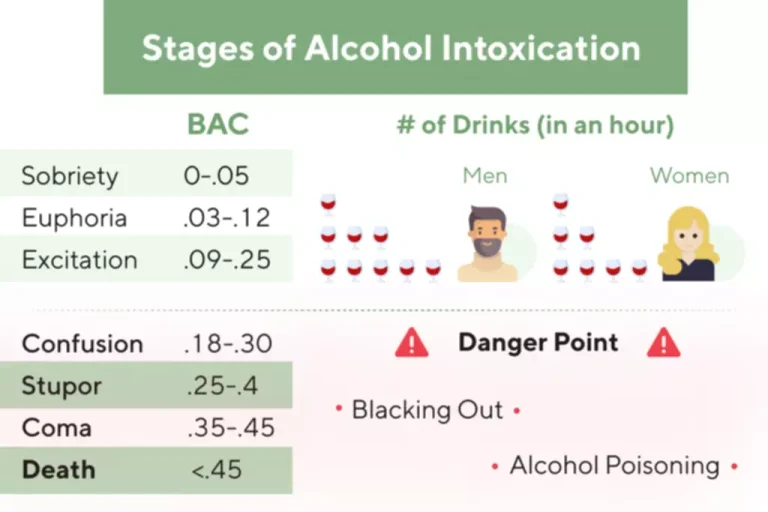
To minimize nasal congestion, consider choosing low-histamine drinks and staying hydrated by drinking water alongside alcohol. Additionally, being aware of any personal allergies can help you select beverages that won’t trigger symptoms. While complete prevention may be challenging, there are steps you can take to reduce the chances of experiencing nasal congestion after wine consumption.
- Eating cold foods like ice cream or drinking something cold could trigger a reflexive cough action.
- It can be passed down through generations, even if it doesn’t appear to affect your parents or grandparents.
- However, Pepcid and other H2 blockers only mask the symptoms of alcohol intolerance.
- In persons who already have sinus problems and sinus inflammation, these symptoms make the sinuses feel worse.
- Sunset Alcohol Flush Support is designed to counteract the unpleasant side effects of drinking alcohol.
Can the amount of alcohol consumed affect congestion?

For example, red wine is more likely to cause a reaction due to its high histamine content, and beer contains sulfites, which can also trigger allergic reactions. If you find that your congestion is persistent or worsening, it is important to speak with a healthcare professional as it may be an indication of another medical issue. Additionally, consider tracking the Drug rehabilitation foods and drinks you consume to identify any potential allergens or intolerances that could be causing the symptoms.
- However, these should be used judiciously and under the guidance of a healthcare provider, especially if consumed regularly.
- They are responsible for several functions, including communicating messages to the brain, releasing stomach acid for digestion, and helping the body get rid of allergens or injuries.
- Consider taking supplements designed to reduce acetaldehyde buildup and intolerance symptoms, such as Sunset Alcohol Flush Support, which can help prevent nasal congestion caused by alcohol.
Why does wine make me congested?
- While this may lead to a flushed face and a sense of warmth, it can also result in increased blood flow to the nasal passages.
- For people with sulfite sensitivity, consuming these beverages may result in immediate allergic reactions that include nasal congestion.
- Caffeine, a key component of coffee, is a stimulant that can have both positive and negative effects on the body.
- If you suffer from allergies, it is important to be aware of this link and to avoid alcoholic drinks if possible.
- Skin flushing often accompanies the symptom, making discomfort more noticeable.
You can also try eating foods that are high in antioxidants, such as fruits and vegetables, which may help to mitigate the effects of histamine and other compounds. Additionally, avoiding wines with high levels of sulfites and histamine may also help to reduce the risk of a stuffy nose. Sulfites are a type of preservative commonly used in winemaking to prevent spoilage and extend the shelf life of wine. While sulfites are generally considered safe for consumption, some people may be sensitive to them, and they can contribute to nasal congestion and a stuffy nose. Sulfites can release sulfur dioxide gas, which can irritate the nasal passages and sinuses, leading to increased mucus production and congestion.
Milk and Mucus: Why Dairy is The Major Cause of Your Phlegm, Mucus and Congestion Issues

If you’re someone who frequently experiences nasal congestion after drinking, it might be worth looking into whether sulfites could be contributing to your symptoms. Reading labels or opting for organic wines that typically contain fewer additives could be beneficial. Yes, spicy foods, hot beverages, and certain drinks like red wine can exacerbate congestion symptoms when consumed alongside alcohol. While it’s difficult to completely prevent alcohol-induced congestion, you can try moderation or avoiding alcohol altogether.
- To alleviate nasal congestion after drinking alcohol, consider using saline sprays or neti pots for nasal irrigation.
- Before we dive into the specifics of how coffee affects congestion, it’s essential to understand what congestion is and what causes it.
- Red wine itself does not cause nasal congestion, but the sulfites and histamines that it contains can trigger symptoms in some people.
- A person should consult a doctor for further evaluation and treatment if symptoms persist.
- What’s more is that this genetic variation can be passed down from parent to child, making alcohol intolerance an inherited condition.
For those looking to purchase Cabernet Sauvignon, Total Wine provides a wide range of options. With over 1,034 bottles produced each year, you can be sure that there is something for everyone. For the more discerning wine connoisseur, we also offer an excellent example from Brunello di Montalcino with a limited availability of 59 bottles. In addition to offering Cabernet Sauvignon, Total Wine also offers a variety of other red wines from the Bordeaux/Bordeaux Superieur region with 28 towns represented in our selection. For those prone to sinus issues or allergies, understanding how alcohol affects their sinuses is vital for making informed choices about drinking habits.
Why Does Wine Cause a Stuffy Nose?
Understanding how your body metabolizes alcohol provides insight into why certain reactions occur post-consumption. The liver plays a pivotal role here; it processes ethanol into acetaldehyde—a toxic compound that contributes significantly to hangover symptoms including headaches and nausea. Personal factors such as age, gender, diet, and overall health also play significant roles in how one reacts after consuming alcoholic beverages. Alcoholic beverages contain various ingredients, including grains, additives, and artificial flavoring, which trigger intolerance in certain individuals. Ingredients like wheat, barley, rye, or corn provoke digestive distress or allergic-like symptoms in individuals with sensitivities. Skin flushing, a red face, and a heated, burning feeling on the face, neck, or chest are the outcomes of such a reaction.


Alcohol intolerance is linked not to your immune system, but to your metabolic system. With alcohol intolerance, your body isn’t reacting to congested after drinking the presence of alcohol; it’s simply taking a long time to break alcohol down and flush it from the body. Being intolerant to alcohol is different from being allergic to alcohol, and it’s not life-threatening. However, it’s important to know whether you have alcohol intolerance because it can put you at greater risk for alcohol-related health conditions.
